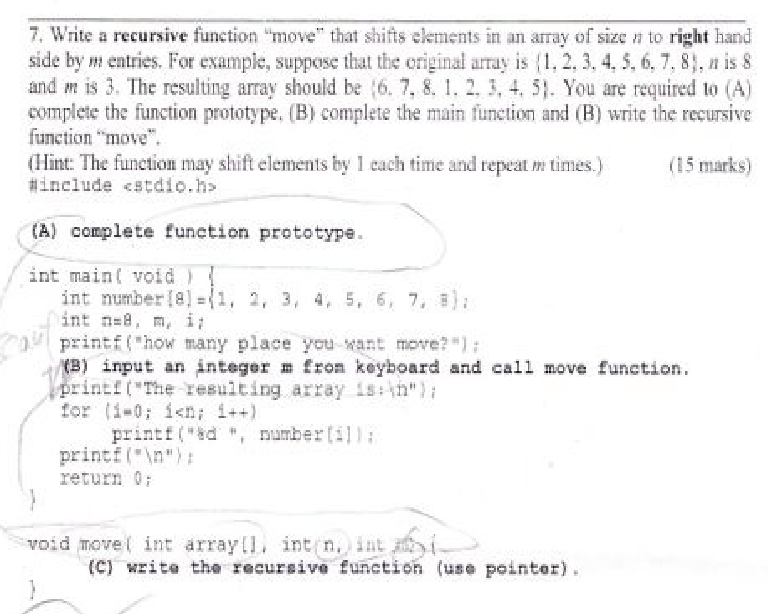Hi, everyone.
Hope you can help me to answer the question,
i am not familiar with recursive function...and i hope someone could help me..
Shift elements means
e.g.
array[ ] = {1, 2, 3, 4, 5, 6};
if the user input a value, say 2,
the array will become {5, 6, 1, 2, 3, 4},
the elements shift to the right by 2;
You may see the file attached as reference.

Thanks.

